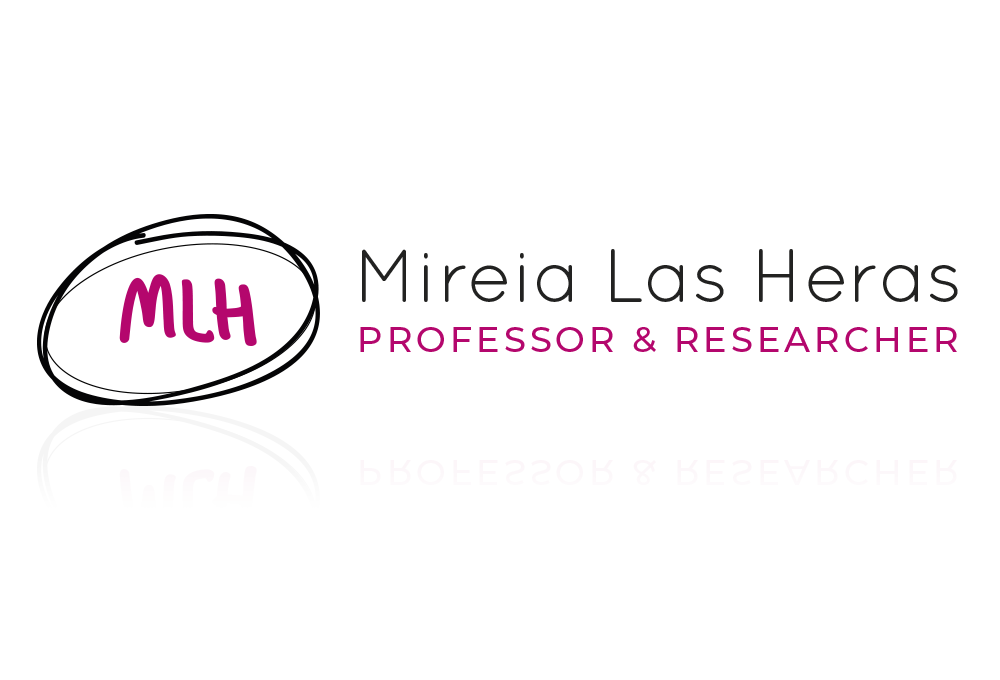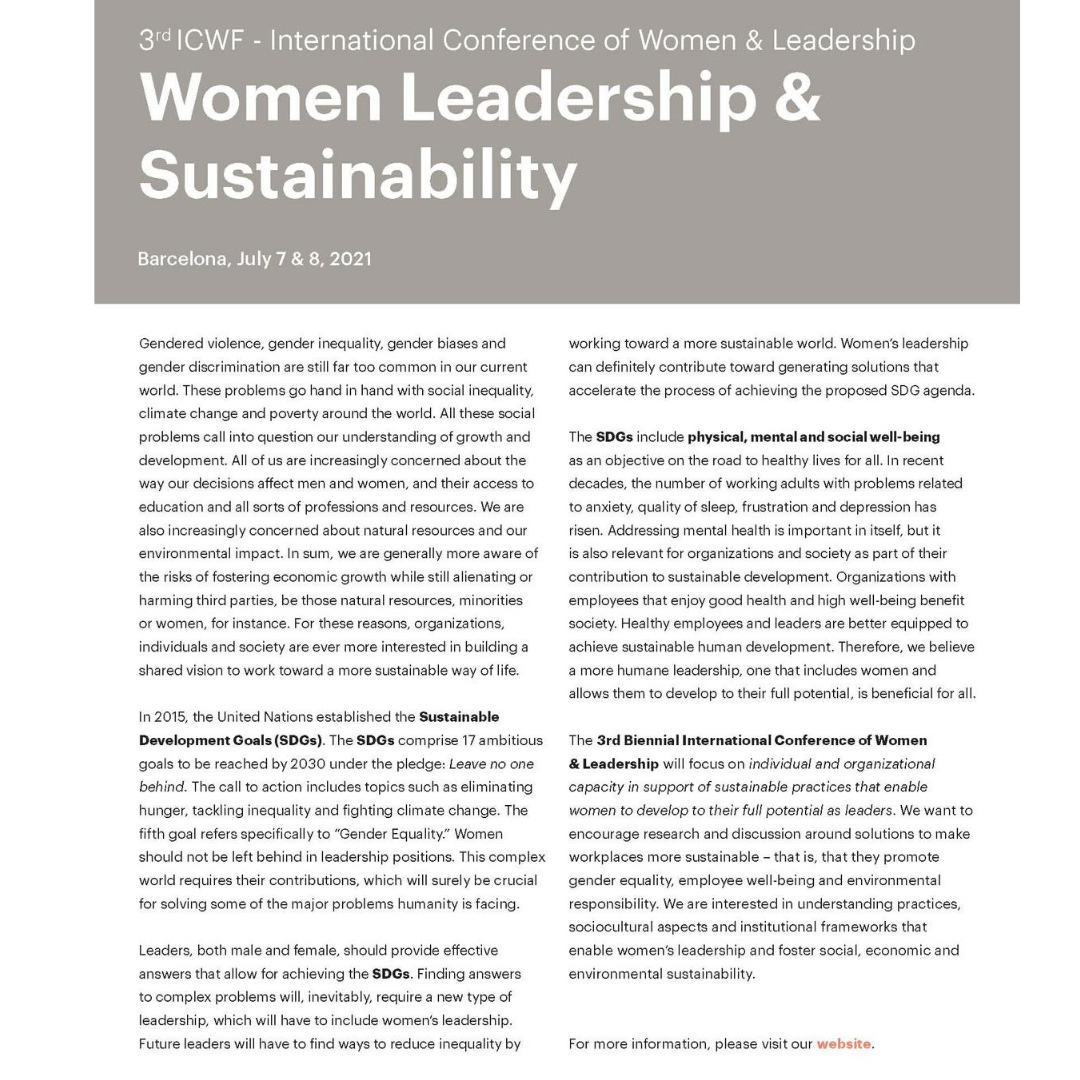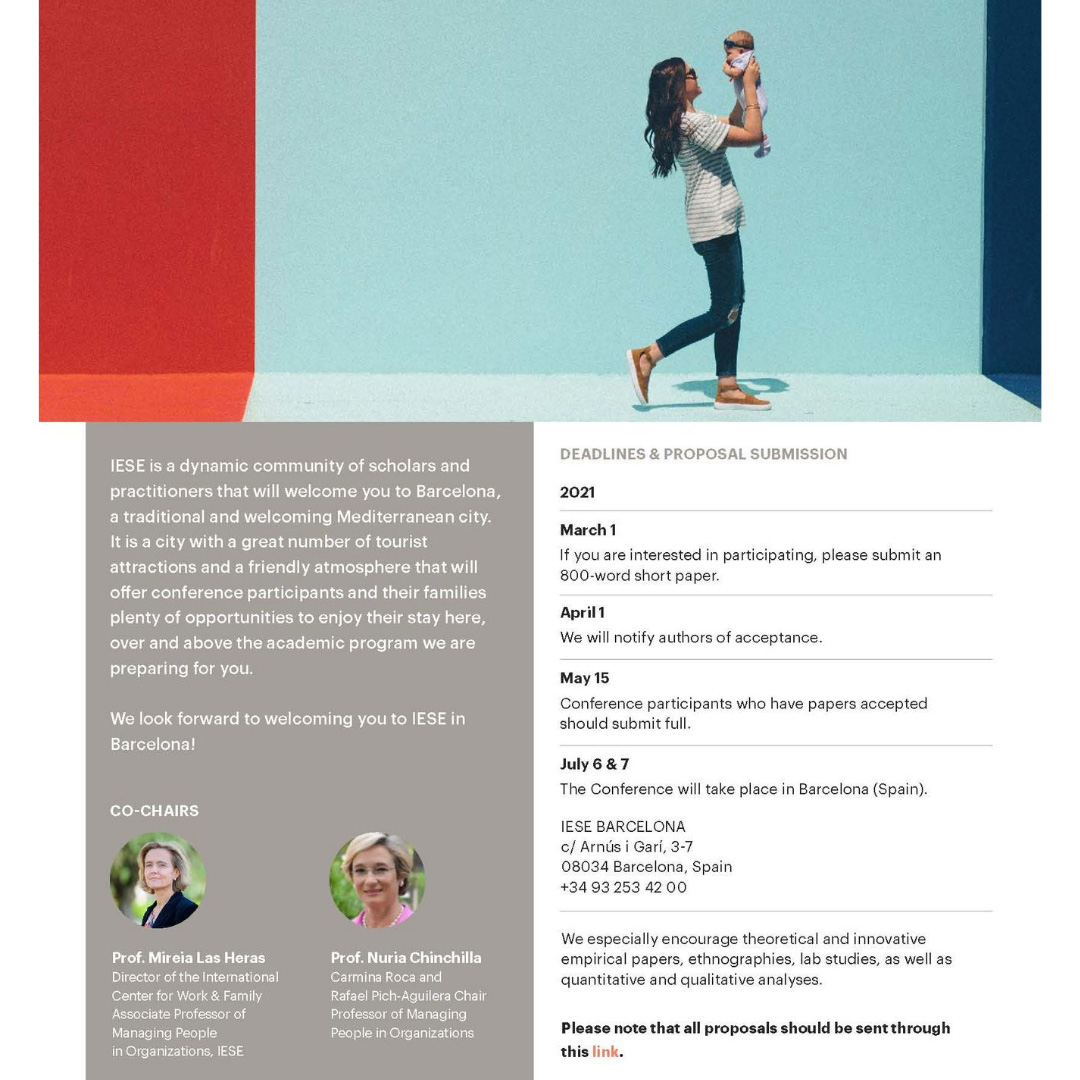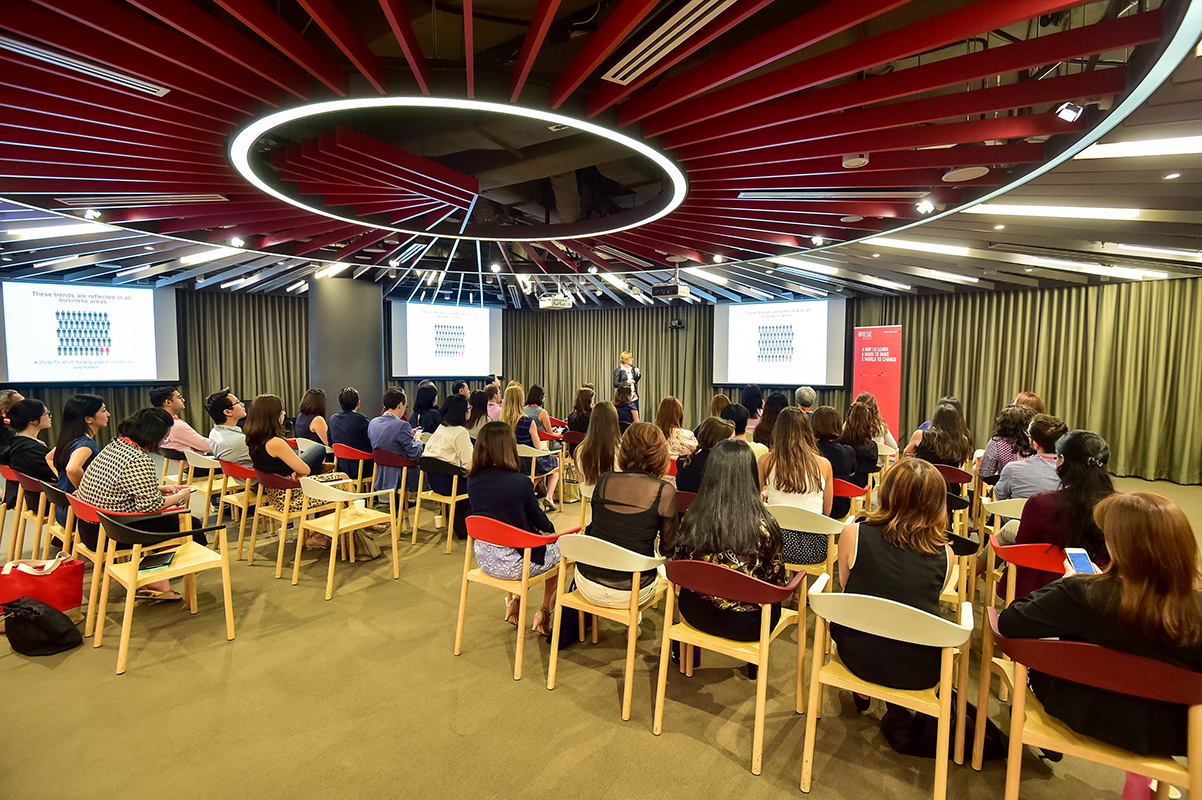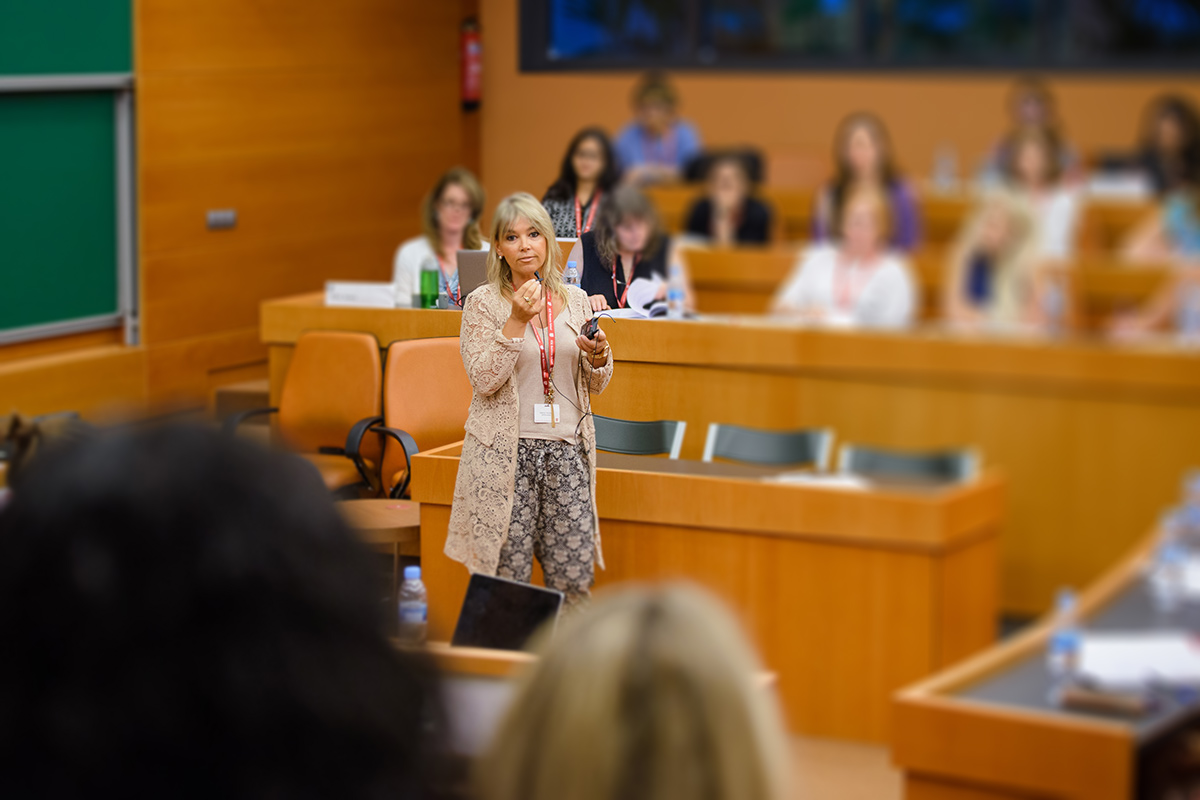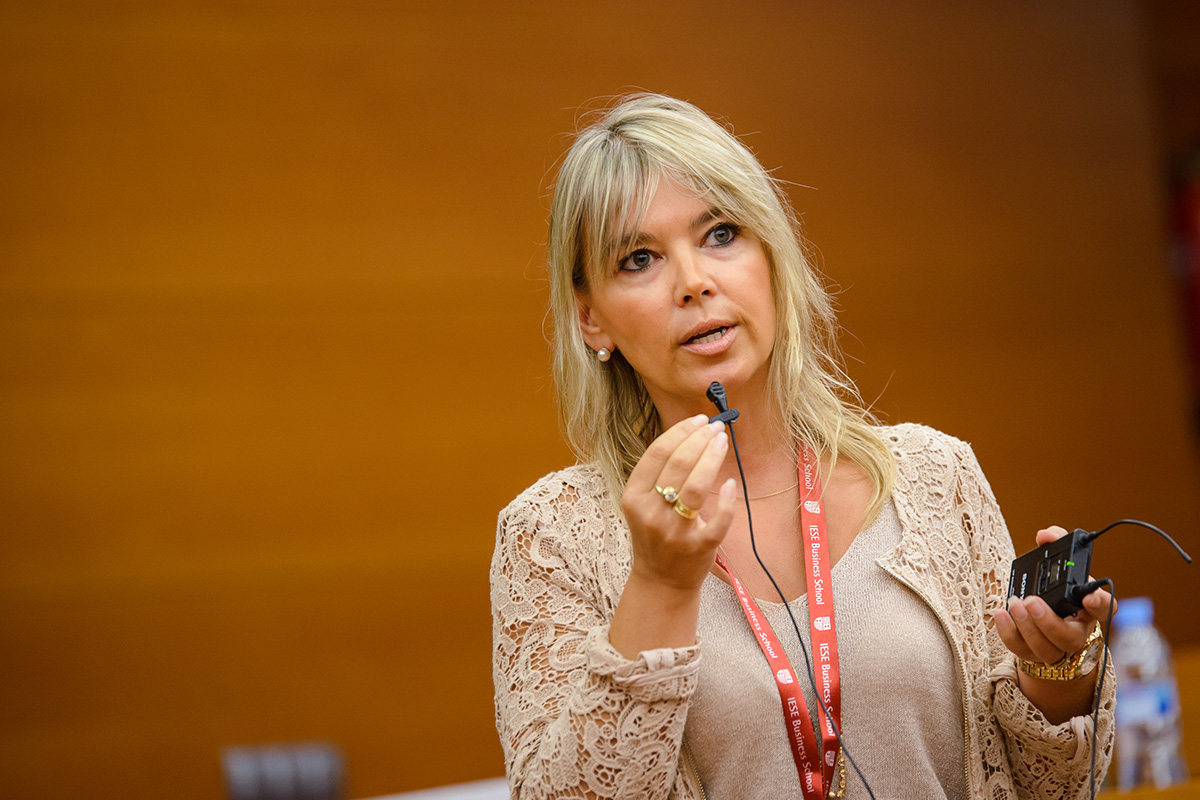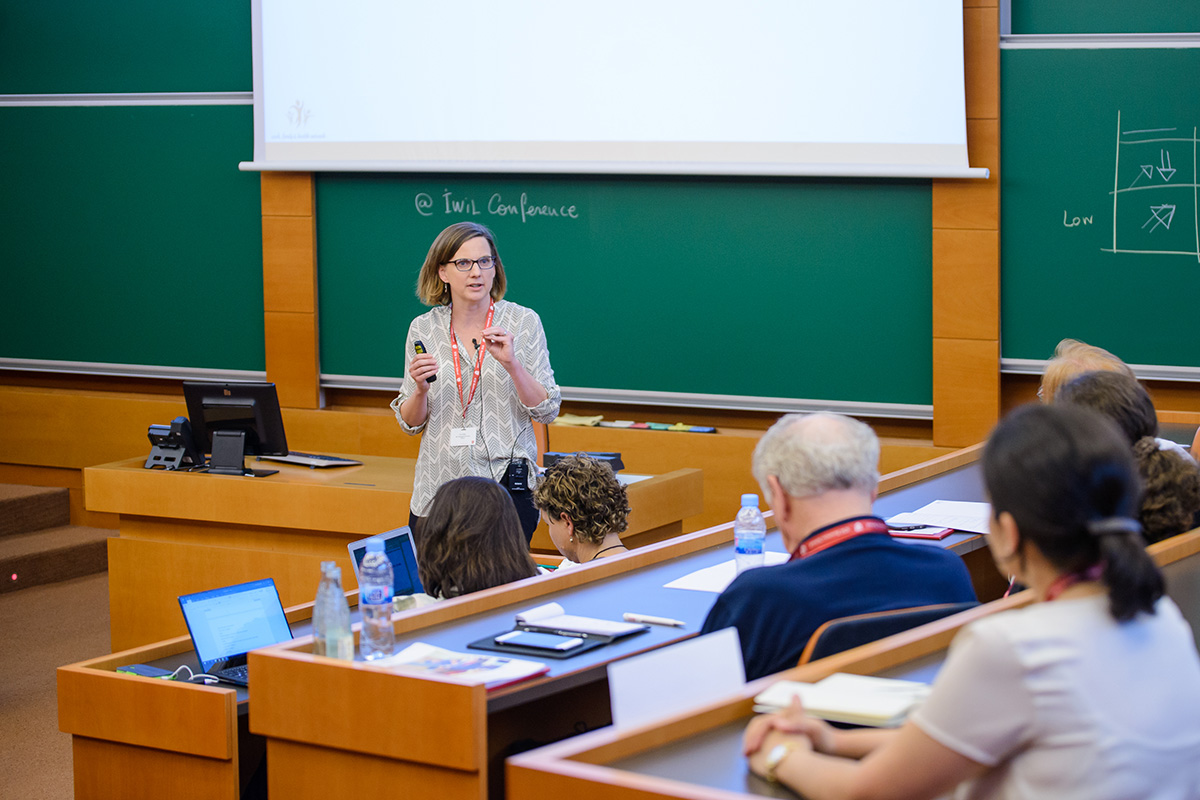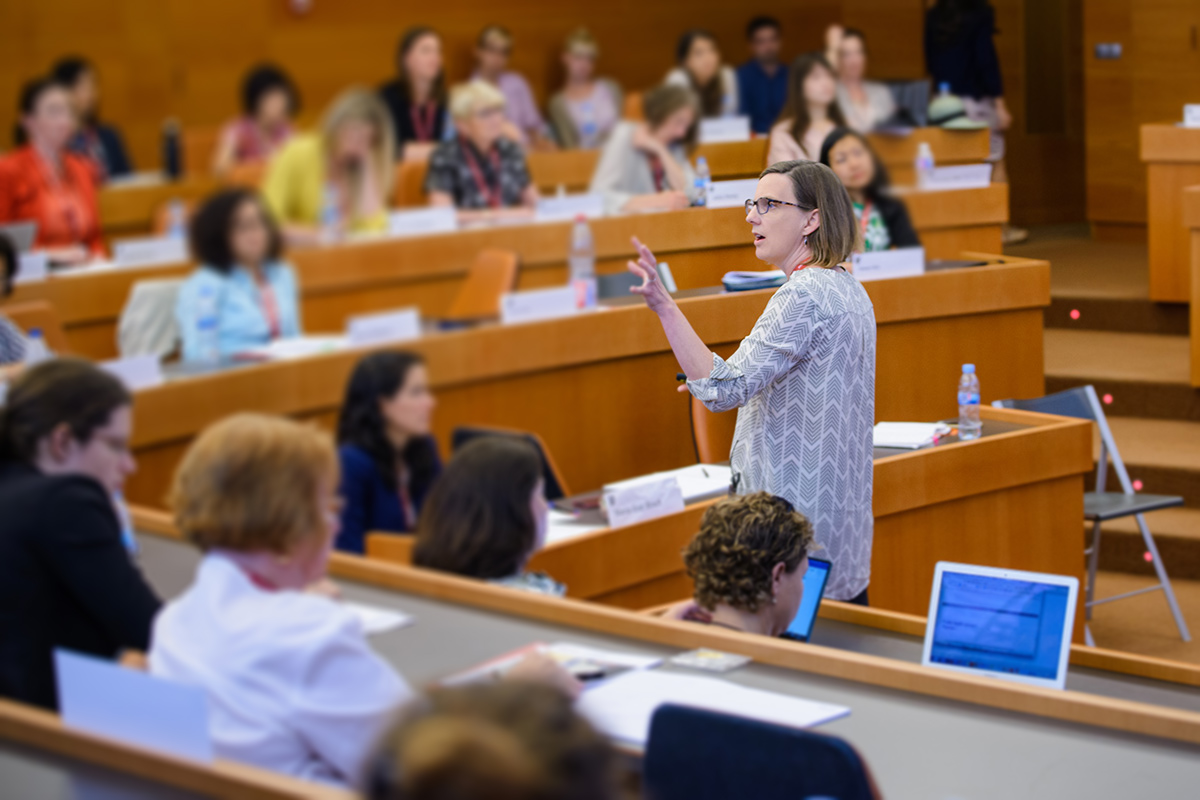Academic Conferences I Organize
Women in Leadership Conferences
Privileged to foster research generation, sharing and advancement in Women’s Leadership
5th International conference for Women in Leadership: Women in Leadership in the era of Artificial Intelligence
June 30 – July 1, 2025
In recent years, we have navigated waves of transformative changes: flexible schedules, remote working, and hybrid models. Just as we began to master these shifts, artificial intelligence emerged, disrupting established norms once again. How do we approach this new landscape? One thing remains constant: the importance of empowering women in leadership roles.
Hybrid and remote work have brought both opportunities and challenges for women leaders. These models offer greater flexibility, allowing women to balance professional responsibilities with personal and family commitments. However, they also present unique hurdles. The blurred boundaries between work and home life can lead to difficulties in disconnecting from work, increased stress, and potential burnout. Moreover, remote connections often lack the personal touch and face-to-face interactions that can strengthen professional relationships and mentorship opportunities.
Artificial intelligence plays a dual role in this scenario. On one hand, AI-driven tools facilitate better time management, automate routine tasks, and enable more efficient remote work. These advancements can support women leaders by freeing up time for strategic decision-making and personal development. On the other hand, AI can introduce new challenges by increasing expectations for productivity and availability. The ability of AI to analyze vast amounts of data quickly may lead to higher workloads and pressure to perform, further complicating the leadership landscape for women.
To navigate these complexities, it is essential to rethink individual and organizational resources that enable female leadership. Providing access to mentorship programs, leadership training, and supportive networks can create an environment where women leaders thrive. Organizations must prioritize policies and practices that recognize the unique challenges faced by women, offering solutions that promote their well-being and professional growth.
Moreover, sociocultural aspects and institutional frameworks play a significant role in encouraging women to develop their full potential as leaders. Societies that value gender equality and inclusivity foster environments where women can excel. It is crucial to address and dismantle barriers that hinder women’s progress in leadership roles, promoting a culture that celebrates and supports female leadership.
At the upcoming 5th bi-annual International Conference on Women in Leadership, we aim to foster discussions on best practices for empowering women leaders in this new era. By sharing experiences and research, we can develop strategies that enhance equality, professional success and personal fulfillment.
4th International conference for Women in Leadership
Barcelona · July 6-7, 2023
The increase of new ways of working brought multiple changes in the workplace with trends such as digitalization, extended flexibility, increased use of information and communication technology and demand for workers with new skills. Along with it, fundamental changes have surged in the way we think about current and future leadership, and the contribution – and barriers – for women in leadership. As we shift towards work arrangements with teams working remotely and at the office, in mixed and fixed schedules, and managing multiple online transactions, we should also shift the way we think about building a vision of leadership that places the human being at the core of business and organizations, and that allows women to develop to their full potential.
In 2020, the global pandemic made millions of employees’ lockdown due to mobility restrictions. Consequently, workers with dependents, ranging from the young to the elderly in their homes, had to manage, within one unique workspace, the responsibilities of a full-time job, plus the work that came from care at home. For instance, people had to manage their professional roles with demands such as: follow-up of school, help with hygiene and chores, virtual class monitoring or being a nurse for the elderly. This led to conflict, due to burn out and stress, especially for women. Some studies have reported this situation made millions of women leave the labor market, and hence represented a setback for advancement for women in leadership.
As organizations return to offices, and employees adapt to new ways of remote and hybrid work, strategies to foster women on leadership should be updated to respond to this new context. With the increase of digital transactions, the demand for workers to transition to new occupations and the reincorporation to the workforce of women who had to quit their jobs during the pandemic, it is important to understand how could this shapes the role of women in leadership. As we are designing the future of work, we believe it is also important to rethink the way we integrate the current and future transformation of leadership that promotes gender equality.
From the Carmina Roca and Rafael Pich-Aguilera Women and Leadership Chair, we have been investigating for years strategies that facilitate the integration of women in the workplace. The 4th bi-annual International Conference of Women and Leadership aims to focus on individual and organizational ways to rethink the understanding of resources that enable women’s leadership under the context of new ways of working. We want to encourage thinking on how, as we define new ways of working, we could also shift the way we think about practices, sociocultural aspects and institutional frameworks that encourage women to develop their full potential as leaders.
3rd ICWF-IWIL Conference: Women Leadership and Sustainability
Gendered violence, gender inequality, gender biases and gender discrimination are still far too common in our current world. These problems go hand in hand with social inequality, climate change and poverty around the world. All these social problems call into question our understanding of growth and development. All of us are increasingly concerned about the way our decisions affect men and women, and their access to education and all sorts of professions and resources. We are also increasingly concerned about natural resources and our environmental impact. In sum, we are generally more aware of the risks of fostering economic growth while still alienating or harming third parties, be those natural resources, minorities or women, for instance. For these reasons, organizations, individuals and society are ever more interested in building a shared vision to work toward a more sustainable way of life.
In 2015, the United Nations established the Sustainable Development Goals (SDGs). The SDGs comprise 17 ambitious goals to be reached by 2030 under the pledge: Leave no one behind. The call to action includes topics such as eliminating hunger, tackling inequality and fighting climate change. The fifth goal refers specifically to “Gender Equality.” Women should not be left behind in leadership positions. This complex world requires their contributions, which will surely be crucial for solving some of the major problems humanity is facing.
Leaders, both male and female, should provide effective answers that allow for achieving the SDGs. Finding answers to complex problems will, inevitably, require a new type of leadership, which will have to include women’s leadership. Future leaders will have to find ways to reduce inequality by working toward a more sustainable world. Women’s leadership can definitely contribute toward generating solutions that accelerate the process of achieving the proposed SDG agenda.
The SDGs include physical, mental and social well-being as an objective on the road to healthy lives for all. In recent decades, the number of working adults with problems related to anxiety, quality of sleep, frustration and depression has risen. Addressing mental health is important in itself, but it is also relevant for organizations and society as part of their contribution to sustainable development. Organizations with employees that enjoy good health and high well-being benefit society. Healthy employees and leaders are better equipped to achieve sustainable human development. Therefore, we believe a more humane leadership, one that includes women and allows them to develop to their full potential, is beneficial for all.
The 3rd Biennial International Conference of Women & Leadership focus on individual and organizational capacity in support of sustainable practices that enable women to develop to their full potential as leaders. We encourage research and discussion around solutions to make workplaces more sustainable – that is, that they promote gender equality, employee well-being and environmental responsibility. We are interested in understanding practices, sociocultural aspects and institutional frameworks that enable women’s leadership and foster social, economic and environmental sustainability.
IESE is a dynamic community of scholars and practitioners that will welcome you to Barcelona, a traditional and welcoming Mediterranean city. It is a city with a great number of tourist attractions and a friendly atmosphere that will offer conference participants and their families plenty of opportunities to enjoy their stay here, over and above the academic program we are preparing for you.
2019 Women in Leadership: Leadership and the Pursuit of Happiness
Mireia co-Chair the 2nd ICWF – International Conference of Women and Leadership “Women Leadership in the Pursuit of Happiness” The conference attracted papers focused on the current and future transformations of leadership and the contribution of (and barriers for) women leadership from a wide range of scientific perspectives: management, philosophy, empirical social sciences, law and regulation, and humanistic studies, among others.
2017 Women in Leadership “The (new) ideal leader”
Mireia Co-chaired the 1st International Conference of Women and Leadership. The Conference took place in Barcelona, Spain and was organized by IESE International Center for Work Family.
The aim of this conference was to create a vision and to build theory on women and leadership, as well as to provide empirical evidence not only for the academia, but also for organizations.
The I-WIL International Conference of Women and Leadership focused on “Women and (new) leadership” acknowledging that the needs for leadership have changed, and that women contributions might be more relevant than ever to contribute to organizational needs. The I-WIL International Conference of Women and Leadership will paid special attention to women and leadership styles and stereotypes, women and careers, women and corporate governance and women and social networks, among others.

